
Christian Hundley

Audio By Carbonatix
The August evening was hot as hell, but a large group had accumulated outside Your Mom’s House, the quirky venue on East 13th Avenue. Everyone was there for R&B Jam Fest, which happens every third Thursday; most were musicians who wanted to support the performers or planned to take the stage themselves. And the crowd only grew as the night went on, until the light of the unique dance floor’s colorful, glowing cubes dimmed under a throng of dancers.
From up-and-coming artists such as violinist/singer Zuri Leigh to scene regulars like Lady Los, Rebecca Hartt and Nelo, the lineup was evidence that Denver has some seriously searing R&B talent – whether the city knows it or not. The event wasn’t limited to that genre, either, with hip-hop or soul inflections, a DJ and professional dancers on hand.
Throughout the show, it was hard to miss the event’s producer, DNA Picasso, dancing in the audience, checking on artists in the back or talking with friends, his smile accentuated by a gleaming gold grill. He’d been working for more than thirteen hours at that point; starting at 7:30 a.m., he’d been at the Auditorium, a music-industry conference and networking event he helped to curate and produce at Swallow Hill Music that just marked a successful second year.
But then again, the only time DNA isn’t working is when he’s sleeping.

DNA Picasso has been a star athlete and VP of sales, but his role as a community leader is his best yet.
Christian Hundley
“I’m somebody who never really had, especially in this music game, a handout,” he says. “And I wasn’t asking for help, because I knew who I was going to be. And people kind of overlooked me. But I worked and worked and worked to get myself to where I’m at now – and there’s so much work left to do.”
Today the artist is impossible to overlook. Aside from his own prolific musical output, DNA Picasso has been fostering and uplifting both the hip-hop scene and the greater music community in Denver with a multitude of projects. There are the two monthly events he produces as Picasso Gvng at Your Mom’s House: R&B Jam Fest and Aux Wars, which is a more hip-hop-centric event that functions as either a competition or an open mic on the last Sunday of the month. In addition to the Auditorium, he’s creating a new organization to provide resources for local musicians called the Colorado Music Industry Alliance. And now he and his partner, acclaimed poet Dominique Christina, are producing and curating Lawless, a series at MCA’s Holiday Theatre that kicks off on September 13 with a fashion show, showcasing unique designers and live music selected by the pair. After that, he and Christina will release their debut music collaboration, an album of R&B love songs titled Lawless: A Love Story.
And all of that doesn’t even graze the surface: DNA is always planning something. He wants the hip-hop scene in Denver to be recognized for its extreme level of talent, and while it will take a group effort to do that, he is definitely helping to lead the charge.
“You’ve got to be a doer,” he says. “Somebody who’s going to create a way, an opportunity, either for themselves or for someone else. It’s not easy to do. I’m an overachiever. And I read this whole thing about overachievers: In the end, it can be detrimental, almost, because I can’t ever be satisfied. My love for the art is also work.”
All that work can seem thankless, he admits. “Would I be loved if I didn’t do this?” he ponders. “More importantly, would I love myself? That’s the even bigger question.”
In his story, love – and the acts of choosing to love and accepting love – is an undeniable throughline that leads to the often-incomprehensible idea of destiny. Because in DNA Picasso’s universe, the stars seemed to align perfectly…and against all odds.
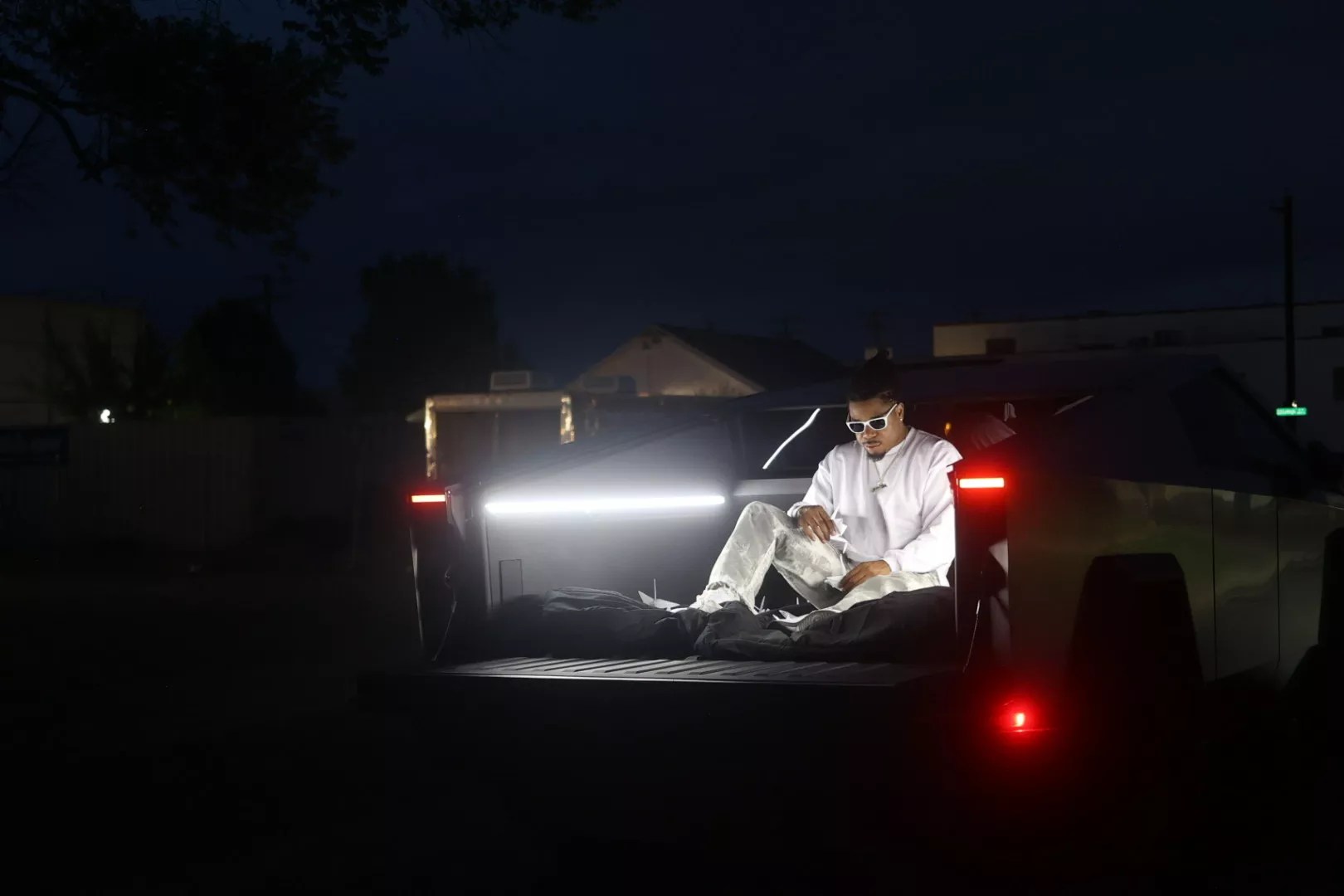
A still from one of DNA Picasso’s recent music videos.
Roshii
Devin Nyshawn Arnold took the DNA moniker from his initials and chose Picasso to round out his name. “I wanted to figure out how to describe myself, and I liked Pablo Picasso’s versatility,” he explains, “whether it be a portrait or abstract. He also created based off of his mood and what was going in the world.”
That’s what DNA does with his music, too: Each album reflects his musings at a point in time, or pulls from a wealth of inspirations. His unique flow can oscillate between different styles of rap; he has a clear R&B influence, and he can sing. And in whatever he creates, the resulting project inevitably generates a mood, an aesthetic – as with Picasso. It’s as though his lyrics are brushstrokes culminating in a textured painting, something you can see but also feel.
“I’m a Black man, so being born in America, I was already a part of hip-hop culture before I started making music,” he says. “I feel like I was part of hip-hop culture before I picked up a pen. Hip-hop is just a way for me to express myself…and I was born in New York, the mecca of hip-hop.”
DNA and his twin brother were born in Harlem Hospital, and were taken into foster care at birth. He moved around foster families in the New York area, and – likely from his own brain protecting him, he thinks – he doesn’t remember much from that time, except for some traumatic flashes: a girl forcibly grabbing his wrists and pressing his hands on a stovetop until they burned, constantly hearing gunshots, being beaten, rarely seeing the sun.
He has a good memory, though. “There’s this rooftop that we used to go to; sometimes they had flowers on it, and we used to play up there. And there was this smell,” he recalls, as if reading from a passage from Marcel Proust’s In Search of Lost Time. “I don’t know if it was the smell of those flowers or just the air in New York at the time, but I just gravitated toward that spot. I wanted to be outside. We weren’t outside often, playing on jungle gyms; we barely knew how to run or how to move our bodies.”
Everything changed when he and his brother, then nearly six years old, appeared on an episode of Maury for a special on adoption. They were the only twins up for adoption in the U.S. at the time. In an old recording made by his adoptive father, the two tentatively walk across the stage, sporting glasses and matching gray suits. DNA’s brother says they want to live somewhere with parents and a grandma.
“It’s hard to watch,” DNA says. “But it’s crazy that we have it. My parents saw that and came and adopted us. I can remind myself where I was, and this thing right here,” he gestures to the video, “is the reason why my life is the way it is.”
His soon-to-be parents had been praying for twins, and they visited New York with their two daughters and son to see the boys. That’s when DNA acquired his second good memory: It was snowing in New York, and “my parents came to hang out with us, and they brought our adoptive siblings, and we were playing and building snowmen.”
The twins moved with their new family to Ontario, California, in 2000. There weren’t many complex emotions involved in the transition, DNA says: “We were just happy to be loved.”
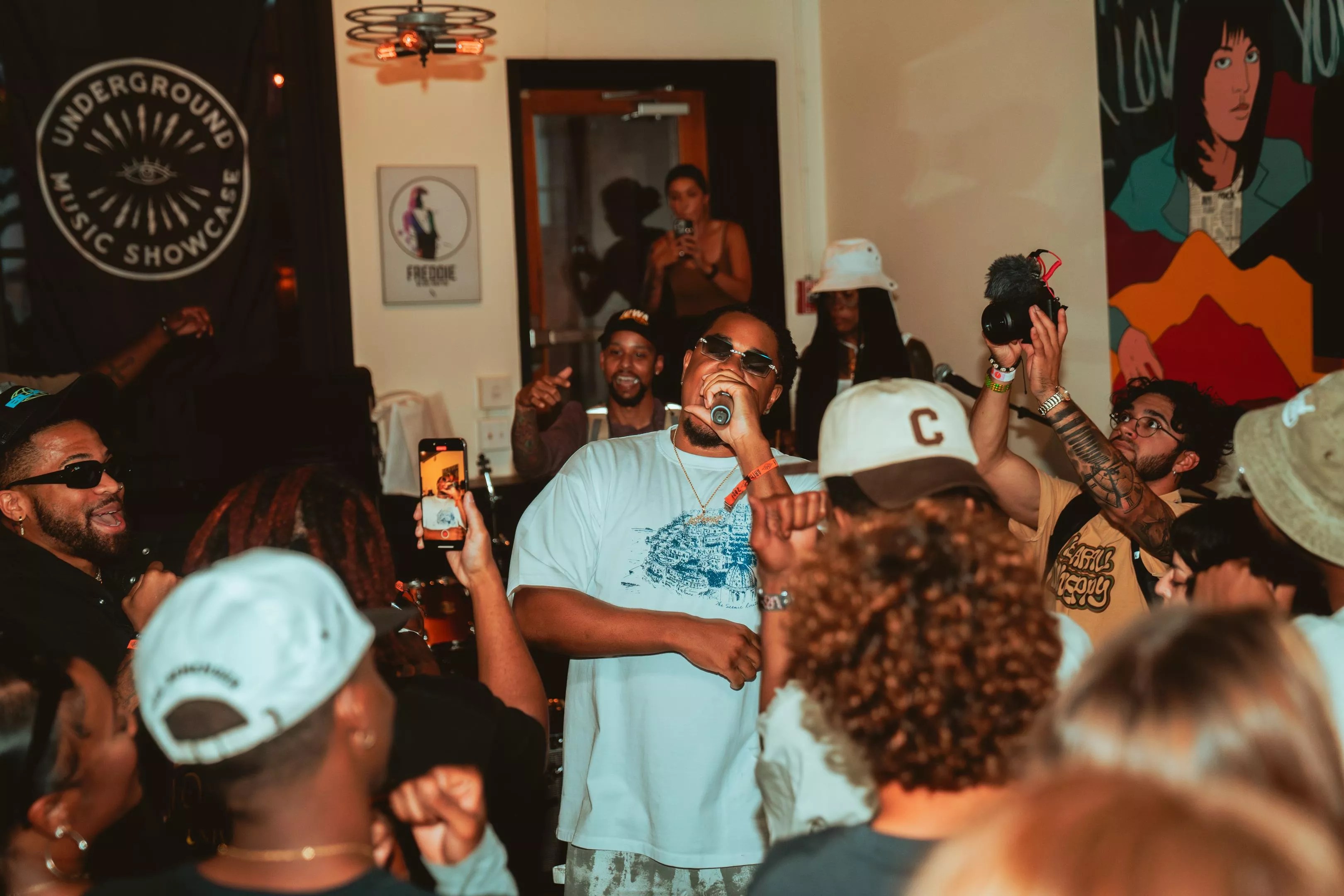
DNA Picasso performing at the Hornet during day 1 of UMS 2024.
Jordan Altergott (@jordanaltergott)
In 2009 the family moved to Colorado, where DNA excelled in track and football at Cherokee Trail High School in Aurora, winning state championships and eventually a scholarship to Hastings College in Nebraska for track and field. But when he failed a class, he became ineligible to compete in an upcoming race.
Frustrated, he decided to leave school, return to Denver and pursue a career in rapping, for which he had recently discovered a talent. One of his friends, Nate Maloley, was also into the art form under the moniker SK8, and was “projected into stardom,” DNA recalls. “He signed with Wiz Khalifa. But I thought my journey was going to go like his, so I ended up leaving school and came home. Everybody thought I was crazy.”
Although he didn’t have the immediate gratification of going viral like his old friend, DNA is now grateful it didn’t happen that way. “There’s a level of entitlement to that,” he notes. Looking back, he says he wasn’t ready. In his mind, an artist needs to grow, and growing pains are necessary for great art.
“I had to have a little bit of an ego death, being slowed down by the universe or God – whatever it is,” he muses. “From 2015 to 2017, I was working in a lot of collectives and collaborating a lot. … I was starting as an outsider in the Denver music industry, so I started figuring out who’s dope and supporting who’s dope, trying to be an asset to people.”
He and his friends formed a clothing collective, Last Ones Left, and started throwing parties. “We realized we could promote and market different things,” he says. “We started producing fashion shows, Project X-style house parties.” Once the group’s members turned 21 in 2018, they began going to clubs and presenting their impressive track history. Soon they were contracted to produce parties at Onyx Ultra Lounge. “We were bringing a lot of celebrities into the nightclub: We brought Dolla $ign, Gucci Mane, Joyner Lucas, Shy Glizzy, Ginuwine, Chris Brown,” DNA recalls. “And Chris Brown didn’t even charge us.”
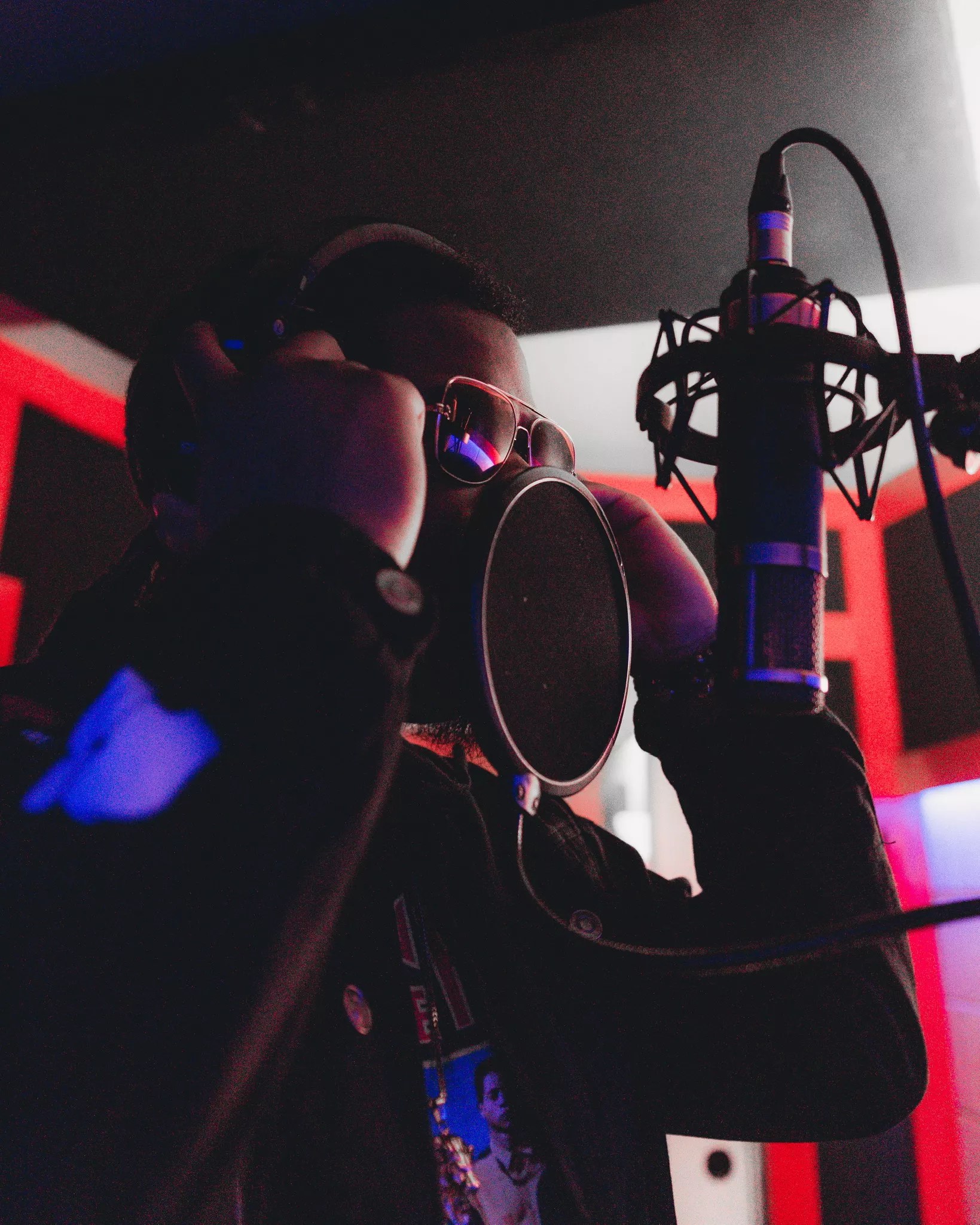
DNA produces events with Picasso Gvng.
Chris Opher
He discovered his innate business acumen and created yet another company with a videographer friend, Nathaniel Barnes (better known as Nuck Fate), doing marketing and advertising for various outfits. Through that, DNA began working with a limo company, ultimately becoming its vice president of sales. And he was still doing his party promotion, booking artists and making music.
Then the pandemic hit. While there were no clubs to work at, there was music to be made. Before that, DNA had mainly released singles and then albums in 2018 and 2019. “In 2020, I ended up dropping an album called #ForTheRecord2,” he says. “And since then, I’ve dropped four albums and four EPs.”
One of the recent themes in his music has been “love,” he says. “Not only talking about being in love, but also feeling like I’m good enough to be loved.”
Looking back, he observes how much his confidence has grown. He’s no longer the shy little boy in a gray suit.
“I don’t know if I felt like this back in the day, but I feel like this now: We were definitely being looked over by someone or something,” he says. “And as much as I talk about not having parents, I still had a lot of people who weren’t obligated to love me or care about me make certain moves to make sure we were okay.”
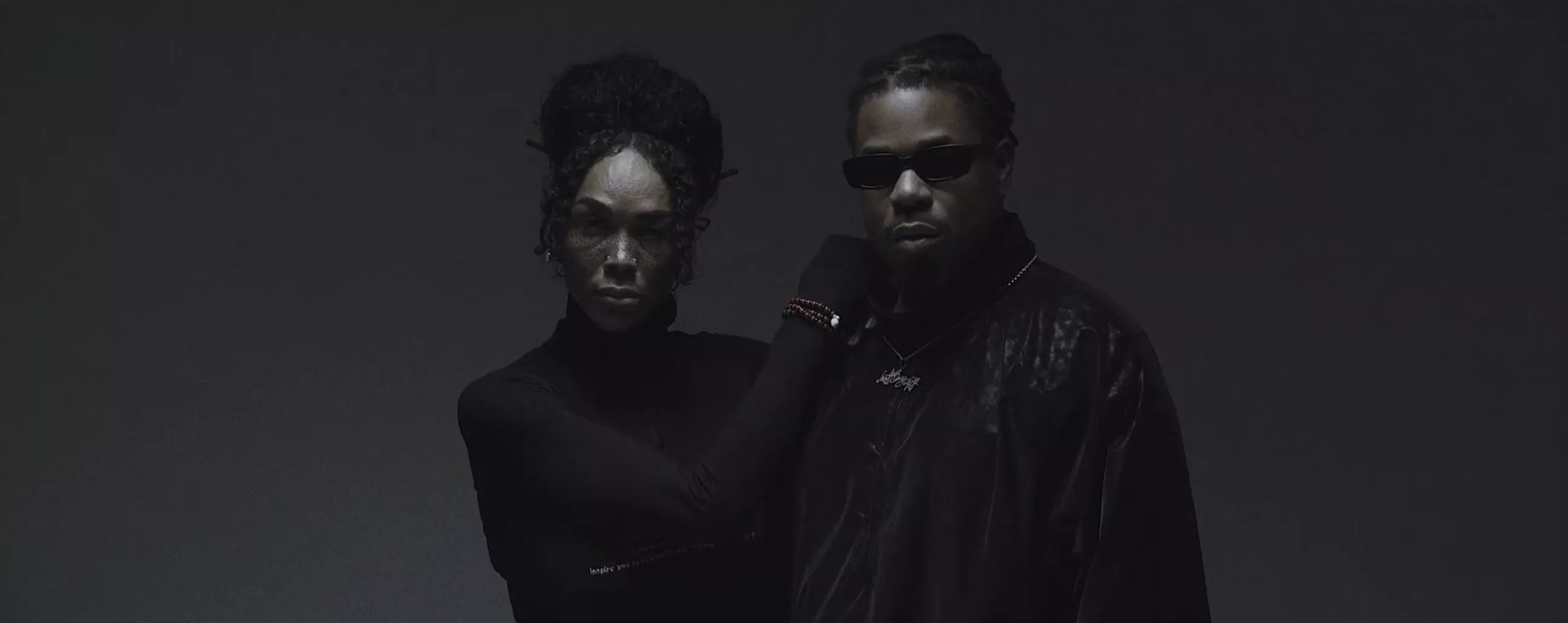
DNA Picasso and Dominique Christina will release Lawless: A Love Story this October.
Nerdrat Media
DNA credits his partner, Dominique Christina, for helping him develop his philosophical perspectives. They met each other through Twitter during the pandemic.
They began writing each other letters – “epistles,” as Christina calls them, which inspired their upcoming album. “It’s how my grandparents met, and it’s just a beautiful, sacred tradition that I didn’t know I was going to get to practice,” she says. “And then here I was, practicing it. So for me, Lawless: A Love Story is just a real extension of those conversations that we had with each other and still have.”
As they learned more about each other, so many coincidences began piling up that they no longer seemed like coincidences; it was more like everything – from what their ancestors did up to their own lived experiences – was conspiring to pull them together. “When it comes to compatibility, we are, in the stars, a perfect match,” DNA says. “That’s my person.”
“He is my familiar,” Christina affirms. “He’s been my familiar since day one. Some of it is inexplicable.”
They discovered that their grandfathers were both born in 1911, although Christina is 21 years older than DNA. She has the same name as his brother, and he has the same birthday as her father. Their Human Design charts were an exact match. He is a twin, and she is a mother to twins. But perhaps the most striking story involves a poem Christina wrote that had a particularly poignant resonance.
“Dominique wrote a poem about this mother who couldn’t take it anymore and jumped off of a building, killing herself and her two kids,” DNA recalls. “And my mom lived in that same building.”
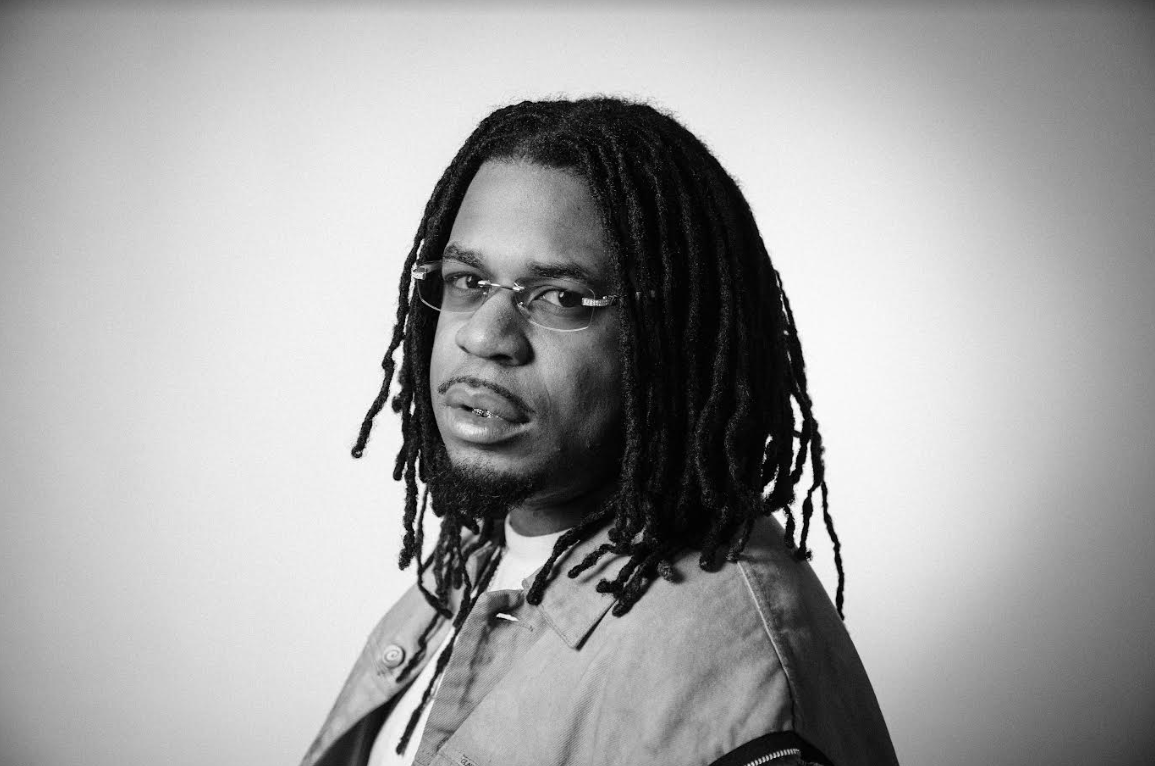
DNA Picasso was born in “the mecca of hip-hop.”
Christian Hundley
When he and Christina began talking, “something told me I could trust her,” he says. “I told her my story, and I sent her [the Maury clip], which I never showed anybody.”
After hearing about his past, Christina offered to help him find his birth mother. No one had ever suggested that before. “And I love her for that,” he says. “I felt like I let my guard down. I felt like I could be vulnerable.”
The quest to find DNA’s mother took the couple a year; relatives they connected with said she had been missing for a long time. Through someone who worked at Medicaid, DNA discovered that his mother, who is around 59 years old, was living in an adult home. He and Christina visited her, and returned for the third time this year.
“My mom struggled with addiction and mental health issues and homelessness,” he says, “so I’m very, very sensitive to those things. I absolutely want to figure out how to help everybody right now, but I just can’t. I know that I have to keep climbing up. I can handle what I can handle, and then…I want to figure out how to really touch all these people. I want to get my mom a house.”

DNA Picasso’s album The Color Blü also draws inspiration from Pablo Picasso’s Blue Period.
High Shutter Productions
The journey to finding his mother and the growing love between him and Christina inspired his 2023 album, The Color Blü. Now they’re spotlighting their connection on Lawless: A Love Story, which will drop on October 25.
“We met through letters,” says Christina, “and this, for me, felt like just more letters being written to each other about how we feel about each other, what we’re thinking about, how we’re relating to ourselves now that we’re in this relationship. I feel like the project is just an extension of those conversations that laid the groundwork for our relationship.”
One of the songs, “Origami,” was recently showcased in a music video via the 48 Hour Film Project, a strong visual complement to the sensual number. The fifteen tracks are replete with passion and vulnerability, particularly “Motherless Child,” which finds DNA reflecting on his own past, supplemented by Christina’s experience as a mother. And there are joyous moments that pull listeners into their aspirational, unconditional love, on such songs as “Luv U Always,” “Heaven Can Wait” and “Renovate.” The album closes out with “First Poem She Wrote,” which consists of Christina reading the first poem she had written for DNA over a hypnotic beat, her silky voice bringing weight to each word of the powerful proclamation.
“I just want people to hear the project and feel glad,” Christina says. “I want people to feel happy for us, but more like happy with us. To be embedded in this joy with us. That’s what I want. I feel like that’s what we get with our friends when they’re around us. I’m very proud of it, yeah. and I want that to translate.”
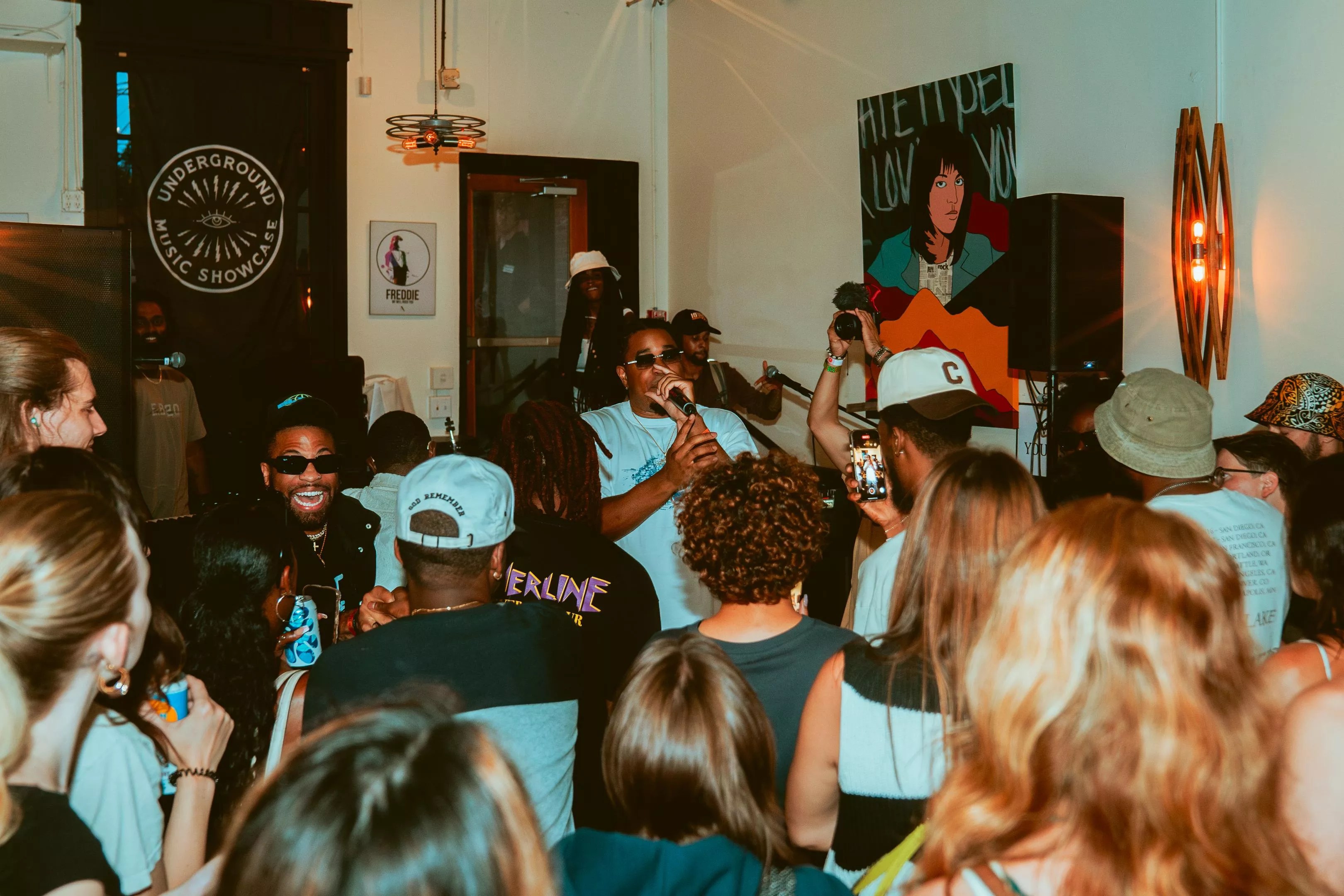
DNA Picasso performing at the Hornet during day 1 of UMS 2024.
Jordan Altergott (@jordanaltergott)
While the power couple’s album took only a couple of weeks to write, creating the Lawless series with the Museum of Contemporary Art’s Holiday Theatre has been a long and arduous process – and DNA and Christina are putting their all into it. They believe the designers they chose – Allegra, Chance of Uniq Jeans, Menez to Society, and Faatma Be Oné – represent the cream of Denver’s fashion crop.
“In an effort to just have high-level curation, I feel like these designers really, really do represent what good fashion truly looks like,” says DNA. “And it helps set a bar.”
The name “Lawless” was chosen for both the album and the MCA series because “that is the most accurate description of how he and I show up in the world – which is to say, the rules just don’t really apply,” Christina says.
“We color outside of the lines all the time; there are no lines. We don’t ask for seats at the table; we might be flipping those tables,” she continues. “We are interested in being in service of our gifts and in support of one another. To me, there’s a culture that doesn’t necessarily know how to honor love and commitment anymore, doesn’t necessarily know how to feed artists, doesn’t necessarily know how to honor our creative process and how much we need it, how invested we are in pouring beauty back into the world, giving you music where bombs used to be, right?
“So to me, that’s a lawless existence – when you are in resistance to a culture that is trying to tear things down and you are trying to build things up, build things up in people, in spaces,” she concludes. “That’s lawless. To me, that’s the ethos, really.”

The venue used to be packed for events like R&B Jam Fest.
Chris Opher
DNA’s work on other projects doesn’t distract him from the goal of building up the local music scene. Alongside Kelsy Lartius Miguel, he has been cultivating a new organization called the Colorado Music Industry Alliance since the beginning of the year. “Basically, our mission is to educate, connect, support, uplift Colorado’s music industry by building a thriving and sustainable scene in the state of Colorado through programming, advocacy and accountability,” DNA says.
He wants it to be a one-stop shop for resources, with a directory for artists, writers, producers, studios and more. “We want to be Colorado’s number-one advocacy and programming organization for the music industry,” he adds.
He already has a robust network, as he demonstrated by leading the charge for strategic partnerships at the Auditorium, bringing in not only panelists, but sponsors like the Colorado Business Committee for the Arts, the Sonic Guild and Illegal Pete’s.
That network is also showcased at events like the R&B Jam Fest. He started the series in 2022 out of his genuine love for the genre; he hosted three shows that year and four the next. Then Your Mom’s House locked him in for twelve shows this year. He already has a lot on his plate, but the meaning of this event keeps him going.
“I think my ‘why’ is knowing that it is bigger than me,” he says. “I created that just to make sure that R&B artists had a place in the community. Also, I had self-serving reasons: I wanted to know about all the artists that were here to be able to work with these people one day.
“The ecosystem that I’ve been able to create with this show…people who are now collaborators, best friends, producers, accompanying musicians, videographers, photographers – all these different things. I’m figuring out I created this community that people feel like they can come in and benefit from,” he adds. “And I don’t know, it’s just crazy to see. It’s crazy to stand back and watch.”
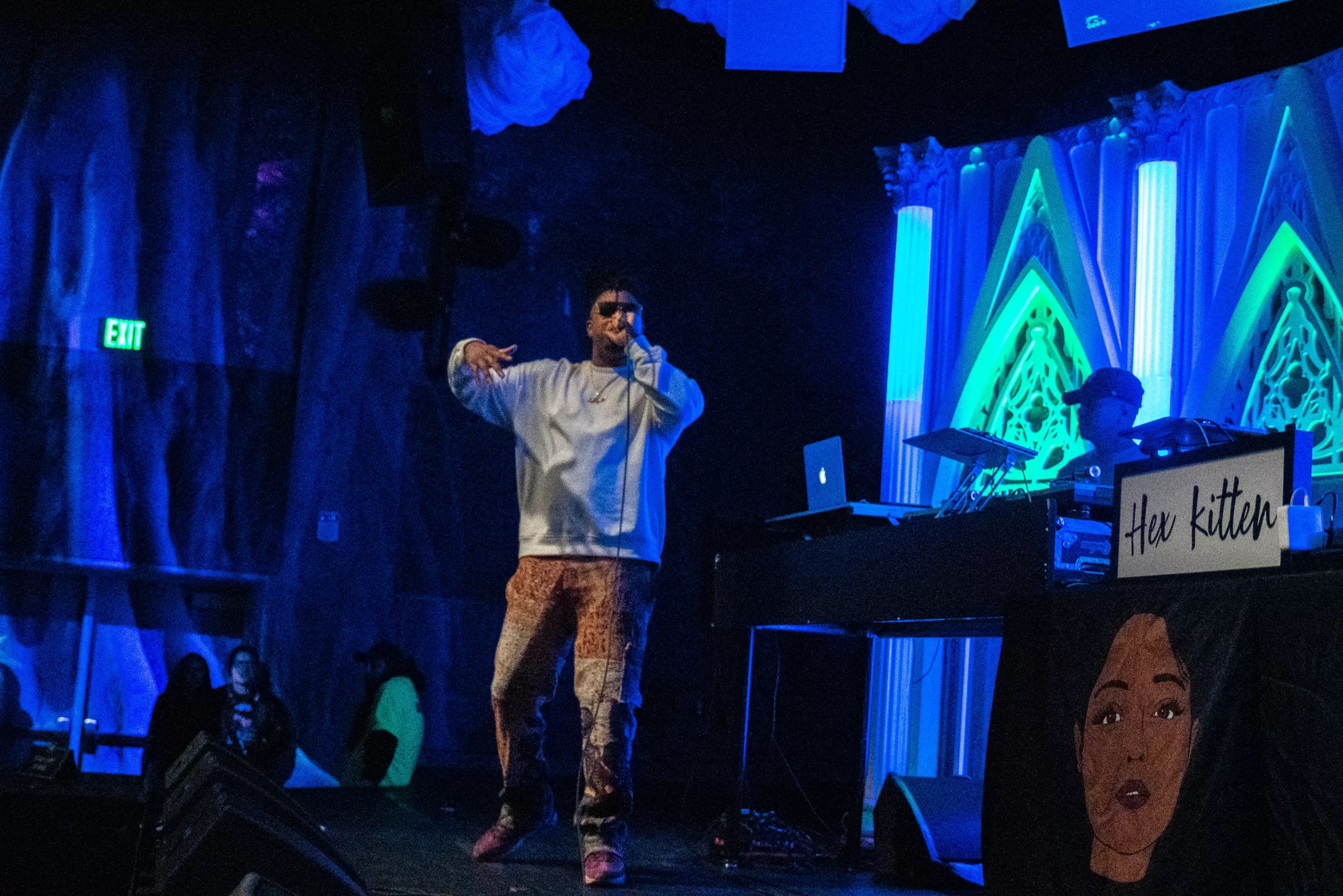
DNA Picasso on stage performing at Meow Wolf.
High Shutter Productions
While he continues creating opportunities, he wants to inspire others in the community to do the same, and is attending Arapahoe Community College to earn his music business certificate to further his goals. Denver is in a unique position when it comes to the music scene, he says, and the wider industry should take notice. “We don’t want this to be another L.A., another New York,” he explains. “We have an interesting opportunity to be able to create something that’s never been seen before, a super-community.”
That means supporting local artists, as the R&B Jam Fest does. Many musicians feel they have to leave for cities like New York, Nashville or Los Angeles to make it big, but DNA thinks the more time that’s invested into building the music scene here, the more the industry will recognize its talent. That also involves advocating for more arts funding. During the Auditorium, he encouraged musicians to look for grants, to apply for residencies, to take care of their needs. And now that he’s a Grammy U member, DNA is speaking to the Recording Academy about partnerships and growing Colorado’s membership base.
“I want to bring the industry here,” he says. “There are no publishing houses here. There should be a Sony Music office downtown. There should be a Warner Brothers office downtown, distribution centers, agents and reps and offices here. We don’t have that. The industry hasn’t come here and embraced the scene here. It’s valuable, but really, it’s untapped gold.
“We need the tools to extract that gold,” DNA concludes. “And that’s where I’m trying to be a pioneer.”